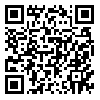Volume 1, Issue 2 (7-2014)
Human Information Interaction 2014, 1(2): 150-159 |
Back to browse issues page
Download citation:
BibTeX | RIS | EndNote | Medlars | ProCite | Reference Manager | RefWorks
Send citation to:



BibTeX | RIS | EndNote | Medlars | ProCite | Reference Manager | RefWorks
Send citation to:
Danaei Moghaddam D. Conceptual Links between Three Theories of Information Behavior. Human Information Interaction 2014; 1 (2)
URL: http://hii.khu.ac.ir/article-1-1875-en.html
URL: http://hii.khu.ac.ir/article-1-1875-en.html
Kharazmi University
Abstract: (11661 Views)
Background and Aim: There seems to be a conceptual link between some theories of human information behavior. These links exist because some of these theories have been derived from same theories in similar fields or have a same approach in theorizing.
Method: In this paper 3 theories of information behavior (information poverty, information overload and social capital) have been discussed and compared.
Results: Chatman’s information poverty theory pays attention to the cultural/behavioural aspect of the phenomenon and clarifies that membership within a social group contributes to information poverty. Information overload describes the situation in which one feels anxious and stressed due to encountering to too much information. Social capital is rooted in social network analysis and explains how the social resources inside one’s network influence the success of achieving desired information. Both information poverty and information overload point out information avoidance, where there exists information but access to it is restricted. Social capital and information poverty both focus on the role of social structure in information seeking and the importance of trust in society.
Conclusion: Libraries can generate social capital by presenting some social programs to help users overcome their information overload and poverty.
Method: In this paper 3 theories of information behavior (information poverty, information overload and social capital) have been discussed and compared.
Results: Chatman’s information poverty theory pays attention to the cultural/behavioural aspect of the phenomenon and clarifies that membership within a social group contributes to information poverty. Information overload describes the situation in which one feels anxious and stressed due to encountering to too much information. Social capital is rooted in social network analysis and explains how the social resources inside one’s network influence the success of achieving desired information. Both information poverty and information overload point out information avoidance, where there exists information but access to it is restricted. Social capital and information poverty both focus on the role of social structure in information seeking and the importance of trust in society.
Conclusion: Libraries can generate social capital by presenting some social programs to help users overcome their information overload and poverty.
Keywords: Information behavior, Information behavior theories, Information poverty, Information overload, Social capital
Type of Study: Research |
Send email to the article author
| Rights and permissions | |
 | This work is licensed under a Creative Commons Attribution-NonCommercial 4.0 International License. |






